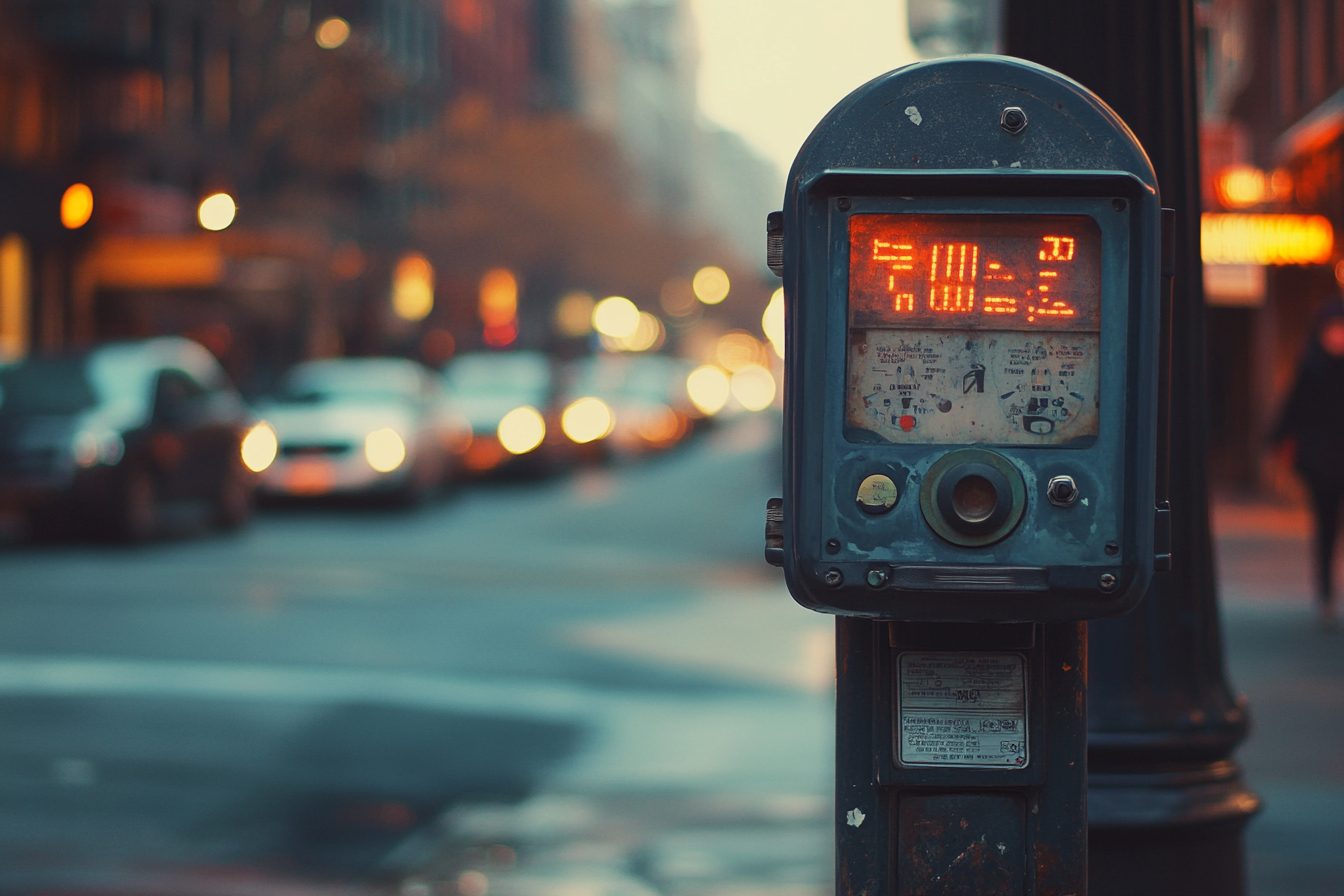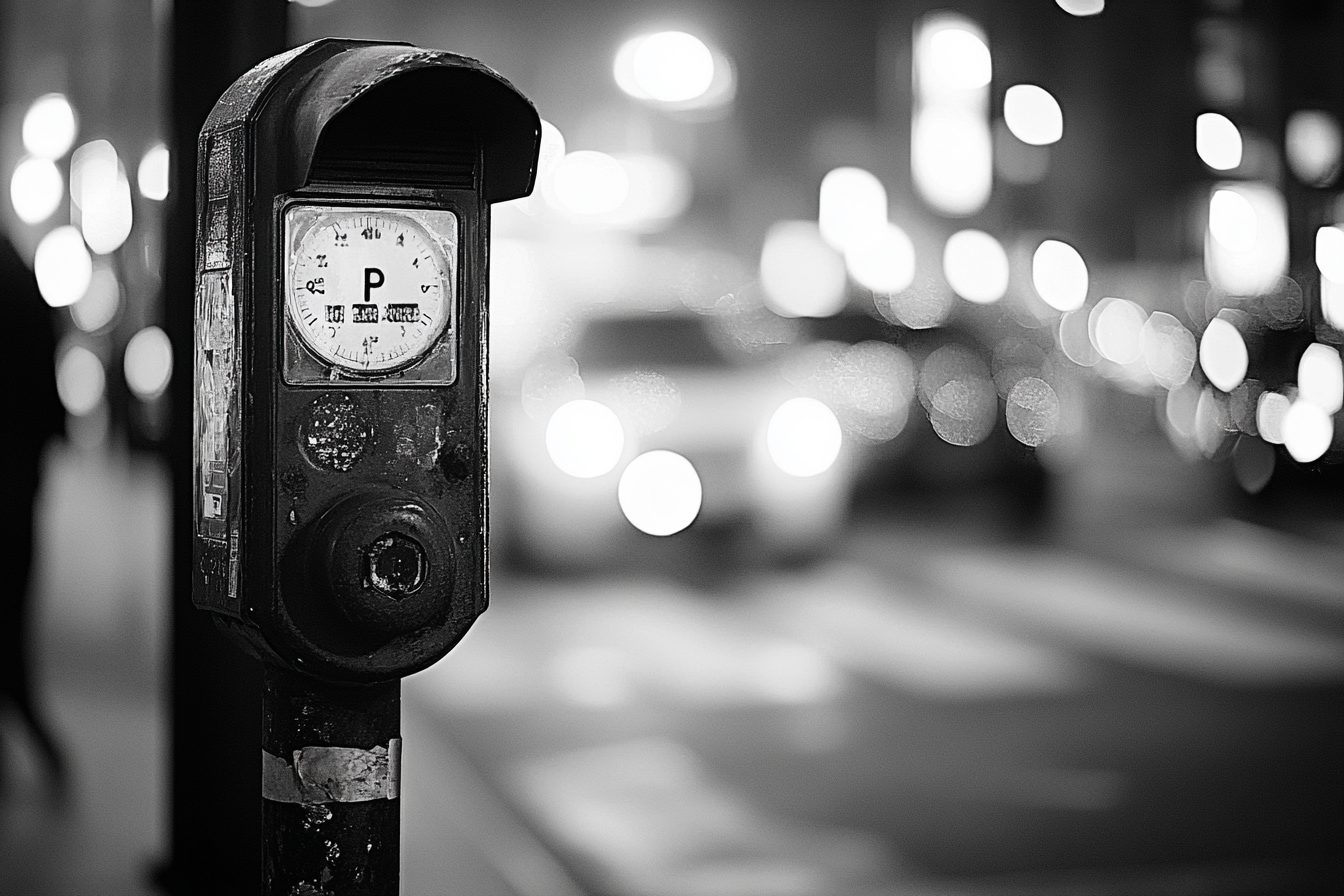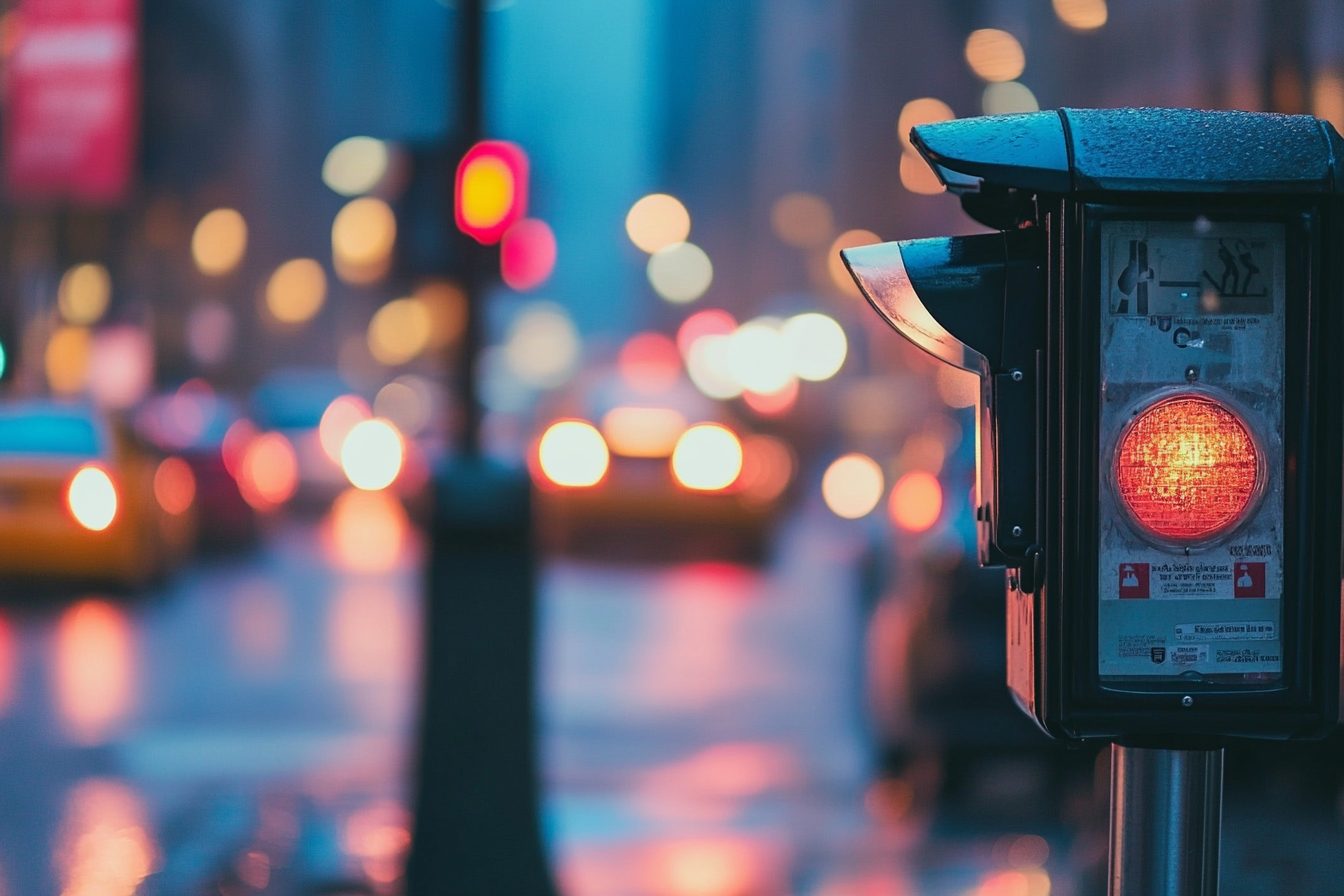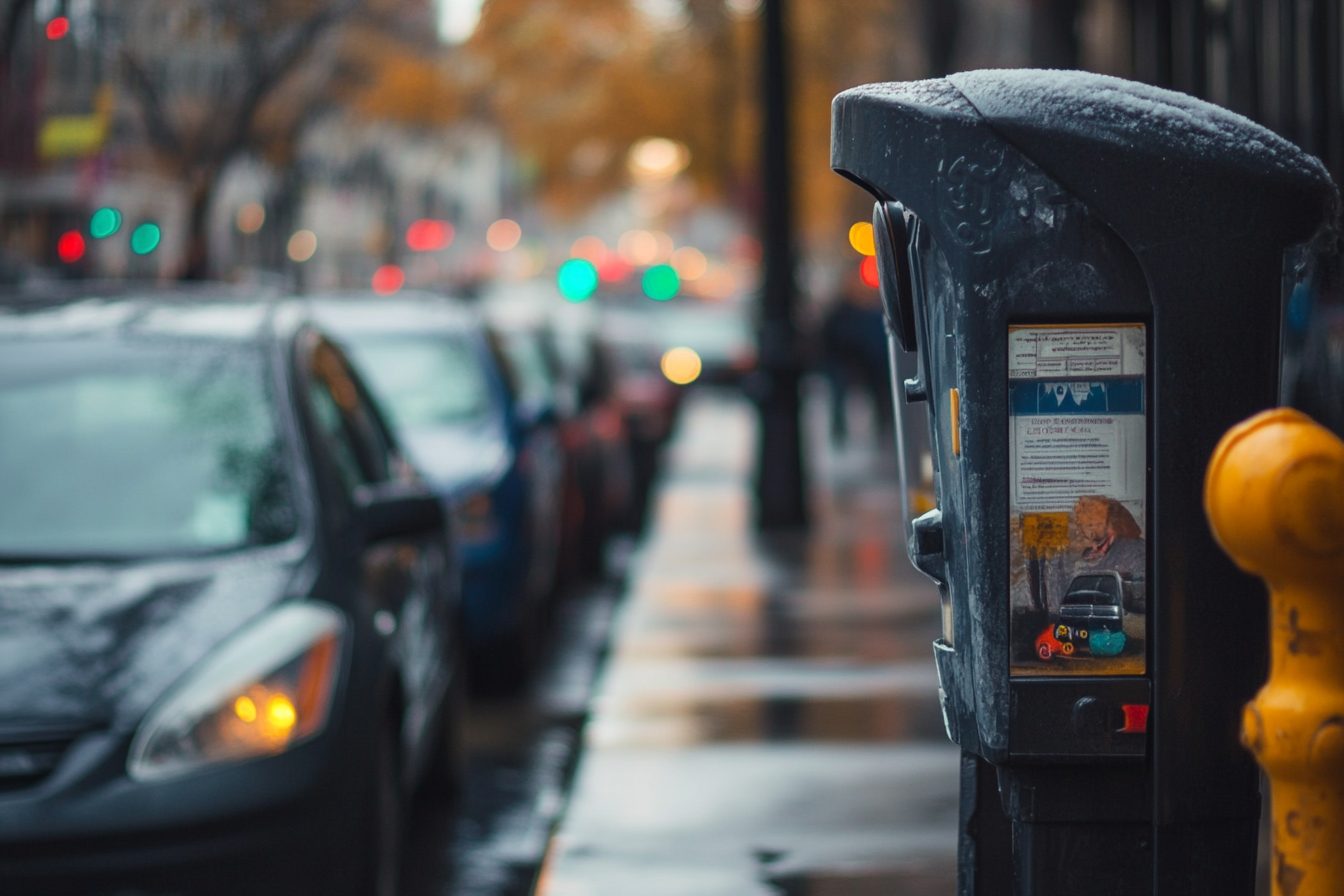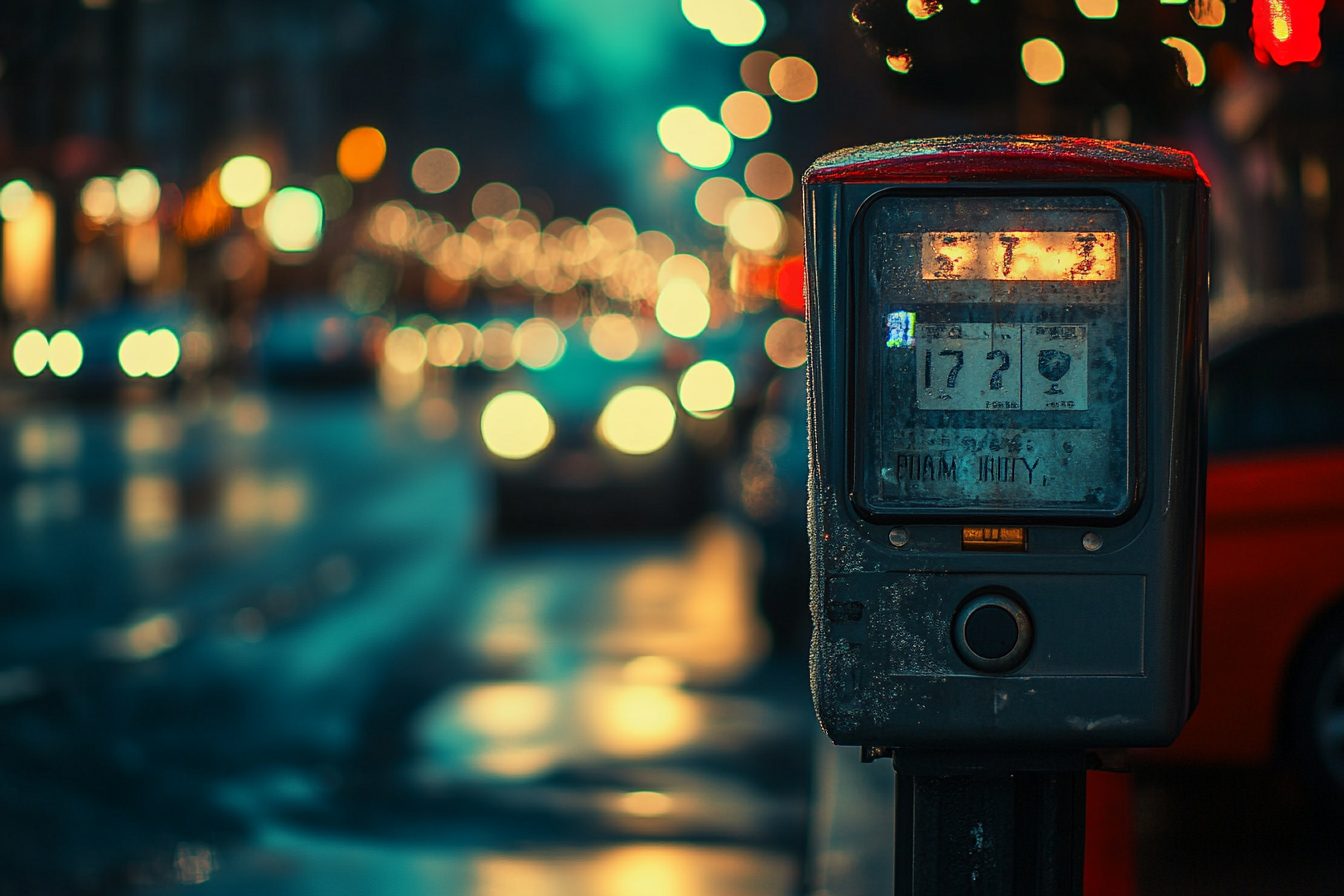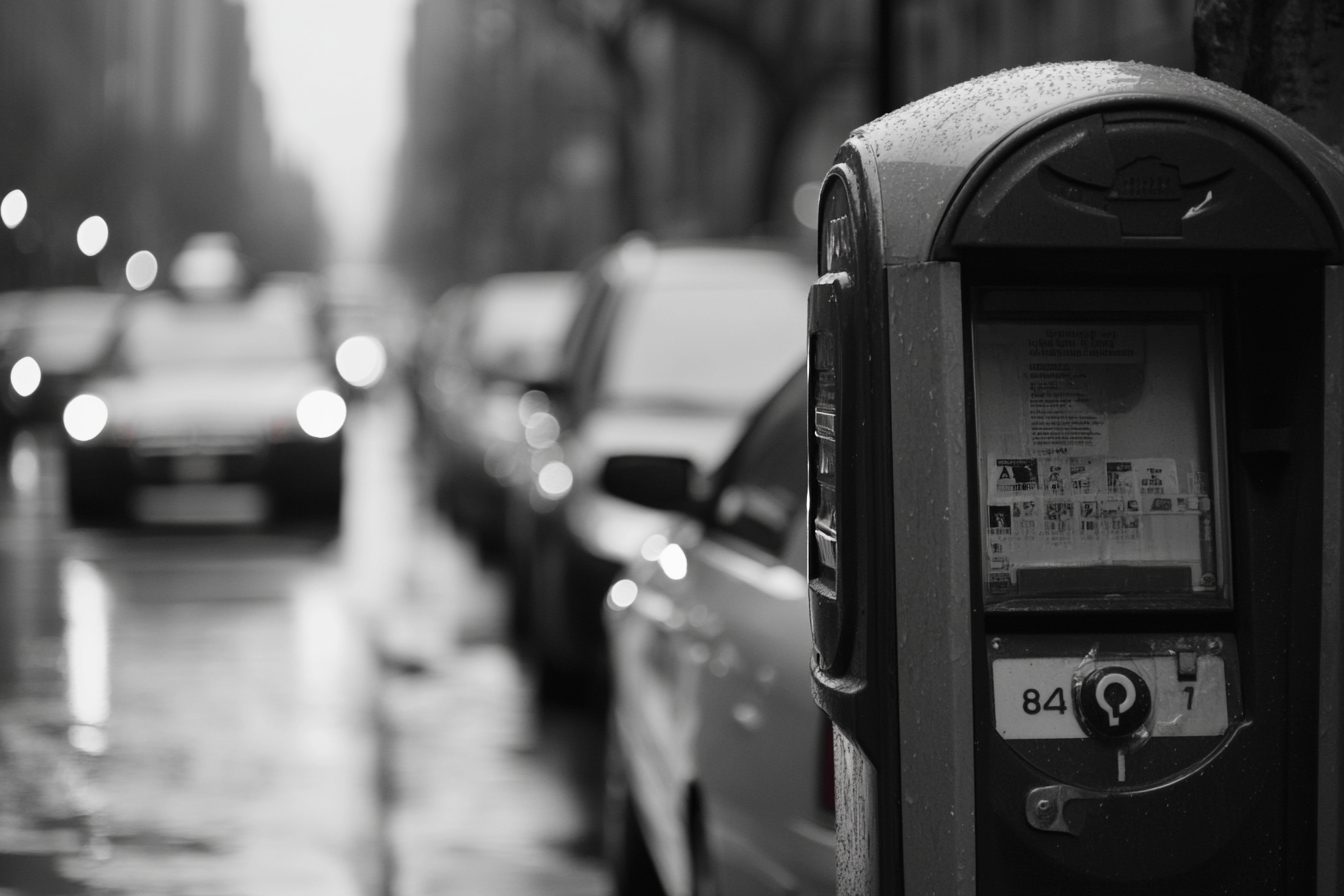Most adults show a unique form of temporal optimism while feeding a parking meter, which is otherwise reasonable. “I’ll just be ten minutes,” somehow translates to a quarter in a meter that charges a dollar an hour. It’s a math that doesn’t really add up.
It’s a type of delusion where I’ve accepted errands can be completed in top tier Navy SEAL efficiency. Last Thursday is a good example of this self deception. Dropping off a package at the post office is something you would think any logical person would take 15 minutes for.
Pulling downtown I parked in a metered spot, spent 30 seconds rummaging through my center console like a good for gold and found two quarters. As I parked, I thought to myself, “That’s perfect. Now I can stay parked for 30 minutes.” While the universe does have some charm, it’s a charm that does not help when it comes to parking meters.
I quickly found that the line at the post office wraps around the entire building with one lone employee who seemed to be chiseling every transaction into stone tablets. I glanced at the clock, and as luck would have it 28 minutes had elapsed. I found myself stuck in a waiting state while quietly soiling my pants.
There’s a special kind of nerve racking panic that creeps up during a visit to a government office, especially if you’re stuck in a line without a working parking meter. Humans are truly fascinating, and in moments like this, I swear some can literally control time. If only day dreaming could help while I waited in limbo.
“Can I focus hard enough to picture a clock as stationary, whilst in reality it slowly drags itself forward?” I kept asking myself whilst staring at my watch almost obsessively. The lady in front of me was shipping an entire household, item by item to Australia … with insurance forms for each item. I considered abandoning my spot.
But then again, I might end up getting slapped with a parking fine. The math was infuriatingly simple: (the possibility of receiving a ticket multiplied by the cost of said ticket) in comparison to the emotional damage of all the time I’ve already wasted and the thoughts of finally reaching the front of the line. I got a ticket.
There’s no way a parking enforcement officer was not hiding behind a mailbox with a stopwatch because the timestamp on my ticket was exactly a minute after my meter expired. I imagine them crouched in some urban disguise, ready to strike like a wildlife photographer to capture the moment my meter is about to run out. This little dance with parking meters has given birth to its own series of behaviors that would confuse anthropologists from a different time period.
First, we have the “courtesy tap” which is when a passerby unsolicited adds a couple of minutes to the meter because they saw it running. Then there is the “meter dash” which is that strange gait of half-walking and mild jogging that conveys the message, “I’m in a rush but trying not to look frantic,” while you’re running to the meter, but not quite. I want to point out something I call “meter math,” it is a unique system of thinking which pops up when deciding how much money you would like to pour for time.
Here is how it goes:
“Here’s my plan, I want to book a slot in a salon for a haircut, which usually lasts for 30 minutes. But, let me factor in extra time due to the possibilty of Steve running late for an addiotonal of 15 minutes. After the haircut appointment, I might also want to drop by the bakery next door, another 10 minutes added here.
But since it is a Wednesday, and the bakery staff is on feet on Wednesdays for ouch sluagred. So they usually are quick at their work, let me adjust and set the bakery time to a 5 minute wall clock. Also, what if on the offchance there happens to be a line?
This calls for a better safe choice of setting 10 minutes. Alright so based on my calculations, that’s… 55 minutes.
Now for the parking rates, $1 per hour; Let me pull out the change purse and my wallet. Inside there is $1.75 which leaves me with 1 hour and 45 minutes. That’s entirely too long, adds up to the total time claw for a sluggish feeling.
Remove- I’m not going to need that long, so I’m just gunnin’ for $1. Let us leave it there, actually I’ll better set the dial for my choice at the bittersweet mark of $1.25. Actually, I want to pause here set a milder state of $1.50.
The extremity I would like to land on is the suggestion of $1.25 alongside the additional spare quarters for my potential trip back if the need arises to further pour in time.”
All of this adding and substracting goes down while doing a neck balancing act of keys, phone, wallet; It results in everything being melted along with whatever meant you to step out in the first place, usually toward change, and with a handy lineup of drivers ready to gun it for your empty area in a means of a nasty weather. We clearly understand the errors in the time estimates. Parking apps were designed to save us from the madness of parking, but it seems almost counter intuitive.
Instead of physically having to pay, many cities allow cashless payments, offer helpful text messages when time is running out, and even allow meter extensions from afar (what happened to just paying for a ticket!?)
On the surface this looks like an improvement for people, but in reality it means I now get to enjoy the new panic of my phone battery dying while I’m still 15 minutes from my car. Additionally, there is the joy of dropping cell service in a downtown area right when I need to add an hour to my meter. My personal favorite is getting a notification that my time is running out while I’m stuck in an important meeting, having to watch a timer until I loose all my money.
Those apps have erased the chance to take advantage of the previous parker’s unused time, that minor but enjoyable urban bonus of arriving at a spot and finding 47 unused minutes left on the meter. Now the city resets the clock between users, making sure they extract maximum revenue from each parking space. It is just like a parking attendant, who follows you back to your car and snatches any remaining quarters from the meter the moment you drive off.
The psychology of parking meter time management is fascinating in its stupidity. For example, there have been times that I spent more money on gas driving to find a cheaper parking spot than just paying for a place to park, truly mind boggling isn’t it? Therefore, it does not surprise me that there are people out there, who have walked six blocks in the rain just to save $2 on parking fees.
I have set timers and alarms for the minute my meter expires, which should be a casual lunch turns into a race against time. The primary issue being discussed in this screenshot is the absence of harmony in parking systems across the region. Some meters may only accept coins, while others accept credit cards, with some demanding the user to download a specific application first.
Then, there are those that require the user to type in a zone number, which is only marked on a sign half a block down the road. Once, I spent so long trying to figure out a parking system in an unknown city that my intended “quick stop” for coffee turned into a 45-minute long issue, with the majority of the time standing in front of a parking machine that seemed crafted by a person who despised drivers. “Enter zone number,” the machine ordered as I got increasingly frustrated.
The initial options prepared to my view had no zone numbers visible from the area I stood. “Please provide license plate”, which further fueled my annoyance as I had to go back to my rented car to check since, who would remember the license plate of a car they had been driving for under a day? “Select the time,” the machine further added, adjusting the increments to the perfect mid-level between how long I needed to be there.
Too little and I’d have to suffer through repeating this technological endurance event; too long and I would end up paying for unused time. To put the cherry on the cake, by the time my legal parking was in order, my need for coffee was nowhere to be seen. Imagining a nice relaxing drink instead really put things into perspective, but it would have meant going through the same parking process again.
The signs that have been posted in those areas are so frustrating, they seem as if they were created by someone used to writing terms of service: What why bother explaining when I can just say this,
“2 HOUR PARKING 9AM-6PM MON-FRI EXCEPT 4PM-6PM TUES & THURS WHEN ITS 30 MIN ONLY UNLESSITS THE 3RD WED OF THE MONTH OR A FULL MOON NO PARKING MIDNIGHT-6AM EXCEPT FOR RESIDENTS WITH ZONE 5B PERMITS TOW AWAY ZONE DURING SNOW EMERGENCIES AND WHENEVER WE FEEL LIKE IT”
The rest is just for ancient scholars with permits, If you don’t, feel free to sit back and watch as the traffic pile builds up around you, since we know nothing of the posterior form of the world. Reason being? Well Apart from the premise being the very definition of cringe, these hieroglyphs do not contain some governing power.
However, Everybody knows about the sacred law of rivers, It does not take a genius or the fusion of Einstein and Da Vinci to understand that these instructions are “do not park until the third Thursday of the month or the block gets transformed for that 60-minute time frame.” This is the range of frame blocking where vehicles become delegates to these holy grounds. This is the ultimate finishing tell machinely supported and powered by crowning eliminates, the Rosetta stone where parking instructions can be uncovered is 15 feet out of the immediate prospective vision so good luck. In today’s world, failure can be unforgiving, especially when you have overrun parking fees.
To avoid annoying parking fines, you will have to take extra care, because such minor inconveniences may turn out expensive and stressful. In many cities, getting a parking ticket is more expensive than dining out, and with multiple violations, it can even surpass your car payment balance. To put it simply, it’s tough out there.
And if your crossing limit of offenses is severe, brace yourself for getting a yellow boot – the ultimate sign of your inept management skills – which clogs your ride and declares you an adequate monument for misplaced time. Also, while conducting business in paid parking zones, running into strict limits and set time frames proves to be quite frustrating. Picture this: you book the maximum time frame of two hours, but run late to the appointment.
Following these rigorous rules means you can’t stay parked over 120 minutes. And if you do, get ready for a daring move – you will have to switch blocks and relocate your vehicle, which is absurd to be honest. Unfortunately, performing this silly ‘musical in the streets’ task will require you to stop whatever you were starting to do.
Once, I had to skip a medical appointment—not a coffee date, but a real medical procedure—because I was running out of time to use my parking spot. The doctor was late, like they always are, but I had to get something in order to get my parking spot. I paid for parking, and by the way, I voted.
I then sprinted out my car for 4 blocks. Once I found a new spot, paid for parking, and started to walk back to the office. I was over sweating, then found out that I had to wait another 30 minutes before the doctor could actually see me.
The parking situation in the city is so ridiculous that it had my blood pressure worrying my doctor, which I found amusing in a rather dark way. “I wish I could explain, but ‘it’s a condition’ is really the only way to say this,” is what I wanted to explain to them. I find great amusement in additional problems like unnecessary panic.
I like to call it “the uncertain end time event” along with the realm of parking anxiety. Imagine a dinner with friends who take forever to finish dessert, a movie whose runtime you didn’t care to check, or even a first date that can last for 30 minutes or 3 hours depending on how the chemistry flows. Each one of these situations can be rather annoying, but at the same time give a good chuckle.
It’s always nice to watch people’s frantic scenarios. Like over-purchasing a parking spot when you’re not even sure how long it’s going to last, which is 9 out of 10 scenarios, you’re certain to be punished. I mean even if you’re watching the clock and only spending two hours, somehow your late friend is the most punctual out of all.
To add more to the mix, your restaurant service is also strikingly slow. Just for everyone to have you sprinting the last block where what’s waiting for you is nothing but a parking ticket screaming, “reminder” to where you left. These rubbers and wires descend from insidious roots – much like how paid parking slots have timers that only serve to induce panic.
Why? Because these entities turn sets of enjoyable actions into mandatory timed exercises. Going out?
Don’t get too comfortable, there’s a timer you need to keep an eye on. Have ten minutes left? You’re welcome to browse a bookstore, haven’t snagged any good books yet?
No time to scroll through the shelves, you need to feed the meter. With the timer popping up everywhere, turning minutes into a countdown, leisure gets a swift kick out the door. There’s still a part of me wondering whom this advanced form of public scamming seeks to benefit.
My first suspicion falls on the local city budget that places emphasis on simple parking slots. Why would they profit from us parking for free? But I wouldn’t be surprised if the real winners here are watch manufacturers along with the battery business, all springing from preventing our collective meter worry.
Antacid companies won’t be too far behind either. In the future, I’m sure my theory will be validated, and we can collectively reminisce while utilizing self-driving cars as the perfect nightmare frustrator. With swarms of cars circling around the block while individuals are running errands, how radical!
Perfect pricing spots would become a set market, allowing for tourists and city dwellers to teleport wherever they want, parking hassle free. In the meantime, I will stick to my custom of feeding just below the expected meter amount and hoping against reason that this will be my lucky cycle.
